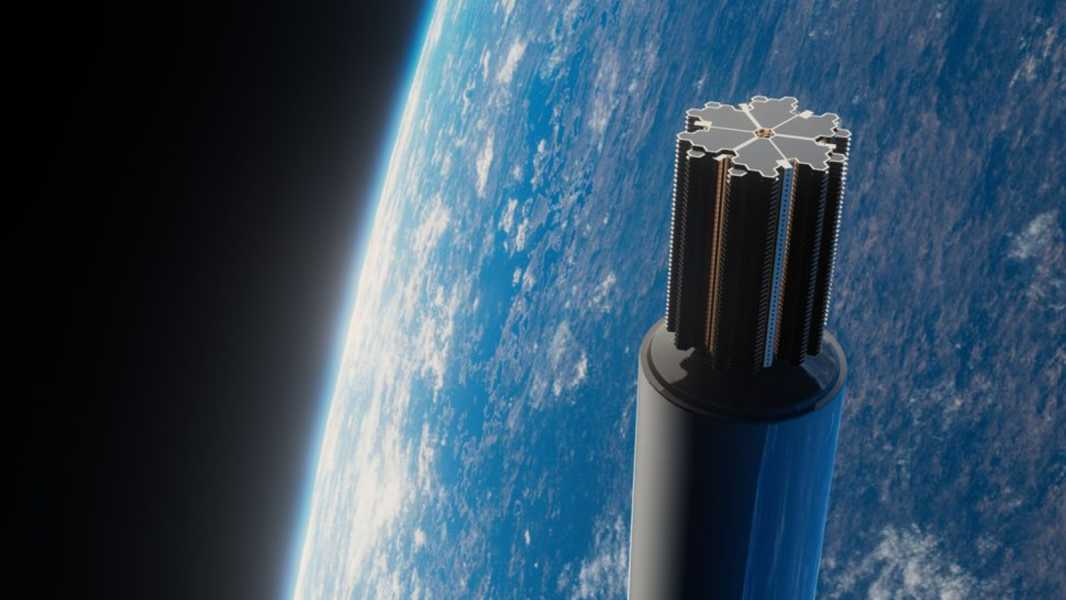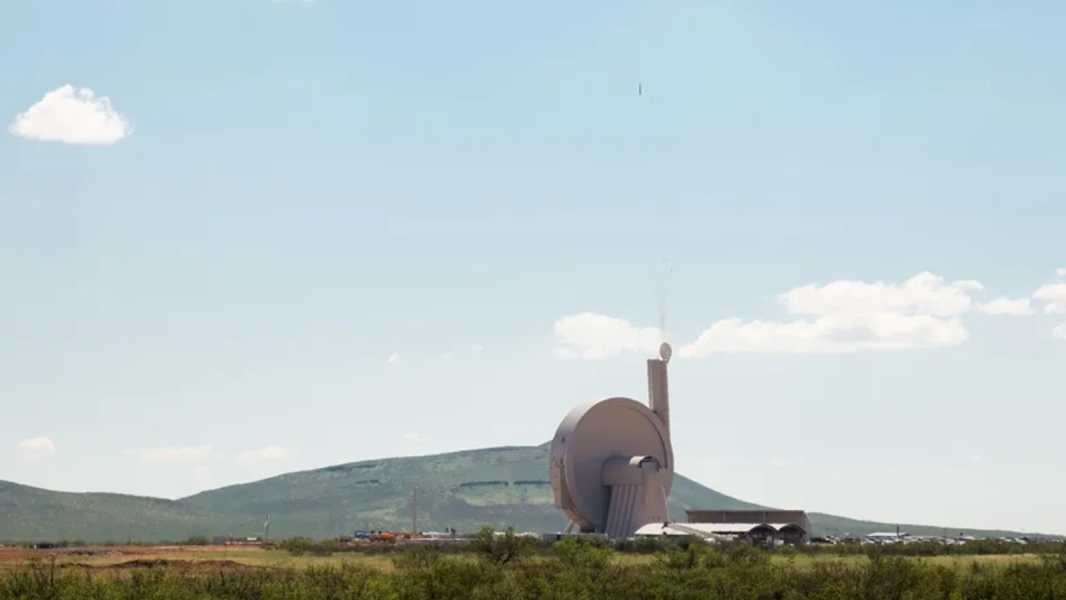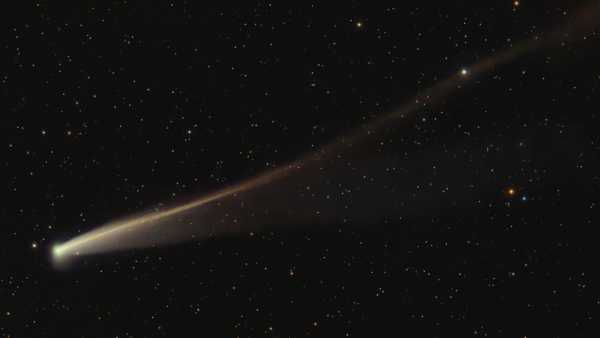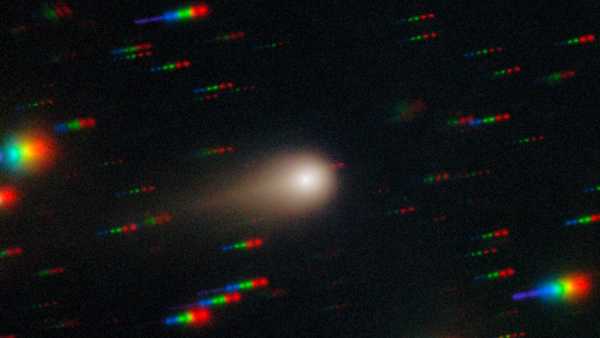
SpinLaunch's Meridian Space satellites will be stacked like pancakes on a 'launch bus' before being launched into space by a booster rocket. (Image credit: SpinLaunch)
A California startup aims to launch hundreds of flattened “microsatellites” into low Earth orbit at once, using its giant centrifugal cannon to launch rockets. The first batch of pancake-shaped spacecraft could be launched as early as next year, potentially setting a new record.
SpinLaunch is a private company that aims to launch payloads into space using its giant cannons. These devices accelerate spacecraft using rotating arms inside a vacuum chamber before launching them out of the barrel at a speed faster than a bullet. Using similar technology, SpinLaunch plans to build its own satellite constellation, Meridian Space, which it claims will be more cost-competitive than networks like SpaceX’s Starlink.
On April 3, SpinLaunch announced that it had received $12 million in funding from Kongsberg Defence and Aerospace (KDA), bringing its total funding close to $150 million. The announcement also noted that KDA's NanoAvionics had been selected to develop the first batch of 250 satellites for the Meridian Space constellation, which could be launched in an on-orbit demonstration test planned for 2026.
On the same day, NanoAvionics also released a video detailing the new satellites. It said that each satellite would be shaped like a flat disk and would be stacked on top of one another inside a “launch platform,” like a giant stack of pancakes. Each satellite would be 7.5 feet (2.2 meters) wide and weigh about 154 pounds (70 kilograms), making them significantly lighter than most other communications satellites. For example, the current Starlink V2 satellites weigh about 1,760 pounds (800 kilograms) each.
If all the satellites are successfully launched into low Earth orbit (LEO) next year, it would set a new record for the most spacecraft launched at one time. The record is currently held by SpaceX's Transporter-1 mission, which has launched 143 satellites into orbit in 2021, according to Live Science sister site Space.com.

The SpinLaunch suborbital booster has already launched 10 rockets into suborbital flight from New Mexico. The launch pictured here occurred on September 27, 2022.
SpinLaunch has previously launched 10 rockets using its New Mexico-based suborbital booster, which has a vacuum chamber about 108 feet (33 m) wide and spins objects at speeds of up to 5,000 mph (8,000 km/h). The latest launch, in September 2022, was the first to successfully deliver multiple
Sourse: www.livescience.com





